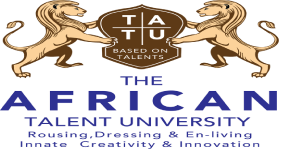ASSESSMENTS AND EXAMINATIONS
An examination (hereinafter, exam) is a form of assessment of learning outcomes. Learning outcomes are assessed on the basis of usually a 6-grade assessment system. All subjects of theoretical nature end with exams. All exams include a written part, except where this is not possible due to the specific nature of the area of specialisation.
Exams are taken during the examination session following the study of the particular subject or on the examination day stipulated by the academic unit.
Pass/fail assessment is used to assess learning outcomes of a practical nature on a pass/fail scale. Assessment is on the basis of work done during the semester. Pass/fail assessment takes place at the last contact lecture.
The Exams and pass/fail assessments in cyclic studies (including distance-learning studies) take place during study sessions or at the time agreed with the member of the teaching staff.
==================================================================================================================
Wow…That’s what we have known for ages; That’s what has killed the talents of many in this world; That’s why we have brought in Talent based Learning….
==================================================================================================================
Talent Based Learning requires determination of the “Talent Genre”, within a “Talent Domain”.
For example; people with “Geo-Spatial Talent” will require their own unique Talent Development Kits and by experts who understand them.
A battery array of “geo tasks” coupled with “stimulated geo-talent ciphers” is employed and the candidate develops designs, merchandises or enterprises in these domains.
The developed outcomes will carry values that may not be academically endowed but possess intrinsic values that on special evaluation, will unearth “Credit Values”.
Talent Experts in this evaluation process are able to use “non-verbal kits” to unearth these credits and make equation to usual academic credits hence transferable for usual certification.
It may be possible that as the Talent Development process was going on, there were concurrent tasks that may have included Academic Clinics. For example; while undertaking Geo-Spatial Talent Development Process, candidates will need additional knowledge that will enrich the process e.g. marketing, financial, communication, etc skills. There will therefore be need to attend such module sessions in the traditional learning without an obligation to undertake usual examinations BUT with freedom to do so if possible.
By attending enrichment courses in traditional classrooms (in our approved member institutions and as per Prior Learning Prescription), the candidate will gain support skills necessary and relevant to the Talent Tasks. It may further be possible that the candidate undertakes examinations and gains further credits from the traditional examinations and gains certification.
Once your “Talent Genre Task(s)” is/are completed to a reasonable level, the outcomes are presented at the “Members Credit Transfer Database” from which experts and university officials evaluate, select and award the credits. It is possible that more than one university may be interested in your Talents Task(s) Credits, Project Credits or Academic Credits or a combination of the same. You will be presented with a report of the accepting list of member universities and costs due and you make a choice based on the university reputation, availability of funding, and /or other conditions the university may impose before the credits are transferred.
It is the universities that will issue the transcripts and certificates, just like it happens in the usual academic process.
So it is possible to achieve your certification (e.g. diploma or degree) via Talent Based Learning or Academics or both. There is no problem getting two degrees at once!
The World Talent University enables this interaction between Talent Clinics (that embed Talent Based Learning) and the Traditional Schools, Colleges or Universities ( that embed Academic Clinics or Learning)
